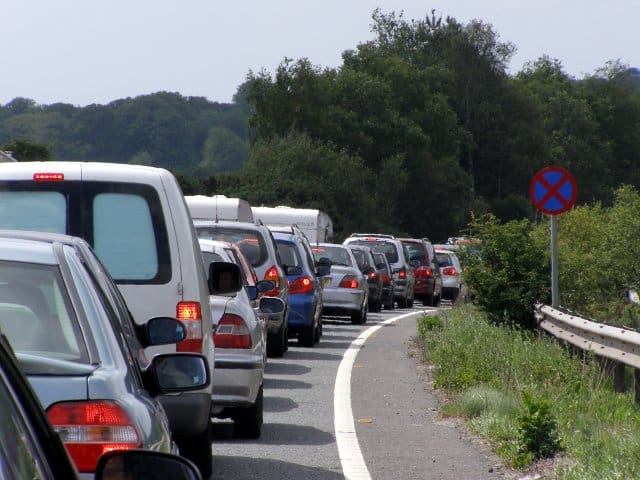Earth Day was yesterday (April 22). This clean world with clear skies and empty roads that we have been forced to inhabit these past few weeks has felt part Eden, part post-apocalypse.
Cycling in Oxford has never been as safe or enjoyable and everyone is talking about hearing the birds and the bees, yet it feels very unreal and slightly eerie. Is that because we are scared about facing the way we have been living our lives up until now?
How can we make sure that we keep the good things about lockdown when we emerge back to a new normal, and what can we do now to plan for that? And what do we want it to look like anyway?
One thing we can probably all agree on is that we want it to be healthy. We know that about 40,000 people every year in the UK alone die from the contribution air pollution makes to ill health, and the WHO estimates this to be 7 million worldwide. We are also beginning to understand that the damage air pollution has done to health was a big underlying factor in vulnerability to covid-19.
So, one thing we might want from our new normal is clean air. How do we achieve that? Milan is already implementing measures to permanently reduce motorised traffic in the city by giving road space to cyclists and pedestrians. The hope must be that cities worldwide are planning the same and will take their example from Italy.
Car-driving has been seen as a necessary part of our lives until this. But who really needs a car these days? I had one for a short while when my children were young, and we drove to places not easily reached by public transport – mainly for football matches!
I switched to online shopping about 15 years ago, supplemented by the odd trip to the farmer’s market and the corner shop for emergencies, and have never looked back – I just can’t understand why anyone would choose to spend their free time going round a supermarket with a trolley!
It is certainly true that Oxford is smaller and a lot flatter than Yorkshire where I was born, and that I am lucky to be healthy, and to be able to choose to work locally. But electric bikes are great these days, and many of us could choose more free time, and less commute time, over higher income.
I loved the New Economics Foundation’s 21 hour week – crudely paraphrased as ‘we have created the system we currently accept as normal, so we can create the system we want.’ We need much better provision of public transport particularly in rural areas, and much better provision for active transport in cities, but covid has certainly shown us that shopping and some other activities such as GP consultations are often as good, if not better, without having to travel.
Air pollution is just one strand in the planetary health emergency; other major areas being carbon emissions, biodiversity crisis and major depletion of quality soil and water.
We find it easier to focus on air pollution because its effects are more immediate to urban dwellers, but we are at critical points for many of these ‘planetary boundaries’. The earth has been very resilient to our abuse, but we are not listening to the warning signs. CO2 emissions are invisible, like a virus, and their effects are long term and deep.
The IPCC, the world’s best scientists, has told us that we must reduce carbon emissions to net zero by 2030. Many countries have ambitious plans to reach net zero by 2050 or 2040. This will highly likely be too late to avoid catastrophic climate change.
It has been hard for anyone to imagine what that means. Many scientists, artists, writers and healthcare professionals have tried to make this emergency more tangible by showing it in terms of things that we sort-of understand: numbers, pictures, poems, narratives.
Yet it cannot feel real until we live at least some part of it, and that is what the Covid crisis has done – enabled us to live both the good and the bad. The good is a vision of where we would love to be for the environment – recovering after decades of resource misuse and pollution, and for society – recovering after decades of communities being torn apart by – what? Crazy consumerism and so much busy-ness that we can’t breathe properly and mental illness is almost the norm?
What can we do in the health sector to learn from covid and prepare for a better, more sustainable future? At the Centre for Sustainable Healthcare, we have been supporting the health sector to become more sustainable on the basis of four principles:
- Prevention
- Patient empowerment and self-care
- Lean systems, including cutting out low value interventions, and
- Lower carbon alternatives, such as a different type of inhaler.
To these, we must add resilience. This is synonymous with sustainability if done properly, but I think is worth noting separately given the focus on different types of preparedness post-Covid. Resilience is for people and for ‘the system’ – shorthand here for all the layers of organised elements of living from community to centralised healthcare.
Perhaps as part of how we prepare for re-emerging into the world after lockdown we can think of concepts such as strengthening immunity and developing adaptability that apply to both people and systems.
Let’s spend more of our money keeping people healthy and not bailing our system out once it’s all gone pear-shaped. Let’s keep time to discuss as a society what we really want.
And, as a first step, let’s keep those cars off the road…





